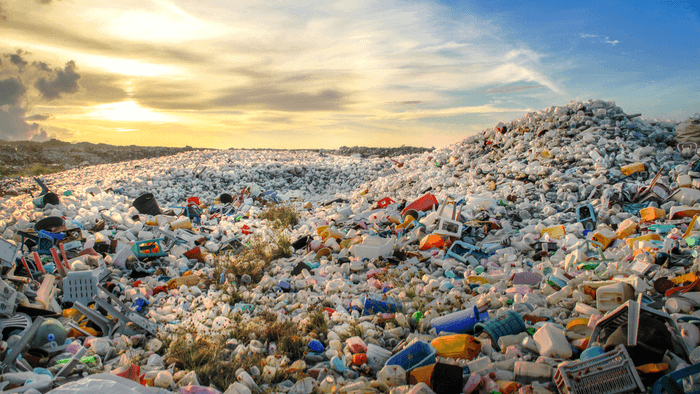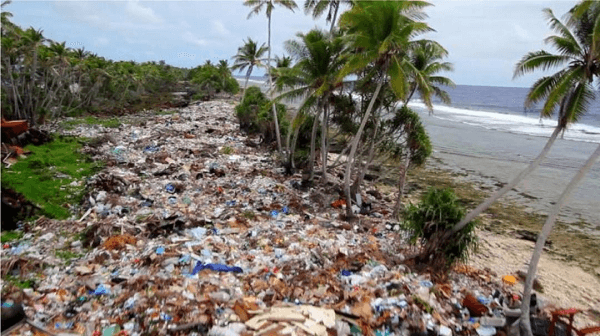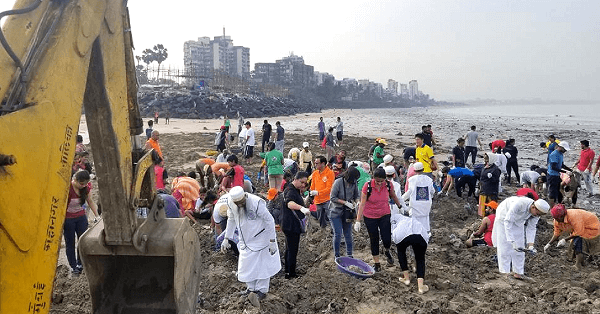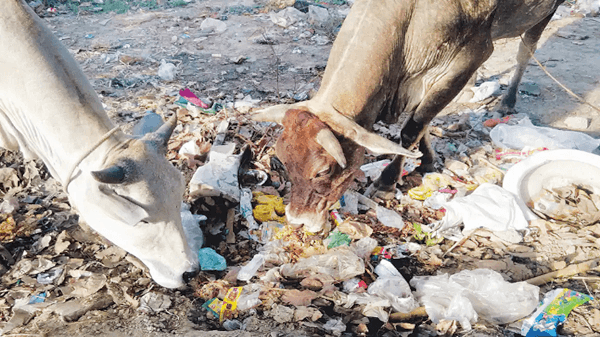Plastic Pollution EssayPlastic is now an integral part of our everyday life. Every day we start with buckets and mugs made of plastic to bathe. In addition, as we trace our actions during our day, we make use of plastics in the form of water bottles, food packaging, combs, straws, milk pouches, straws, disposable cutlery, bags for carrying, gift wrappers and toys, and more. The extensive use of plastics has led to an increase in the amount of garbage produced. Plastic has been so extensively utilised that it is now one of the environmental issues the world is currently facing. It has affected the environment, well-being and our health. We all contribute to the issue, and it is our duty to tackle the problem and eventually stop plastic pollution. 
What is Plastic Pollution?The accumulation of plastics in large quantities in our environment is referred to as plastic pollution. This adversely impacts wildlife, habitats for wildlife and human beings, which has grown to be a major cause of concern. In 2008, our total plastic consumption was estimated at 260 million tonnes. Plastic is versatile, light elastic, flexible, water-resistant, robust, durable, and cheap, which is the reason it is used extensively by every industry. It has replaced and displaced numerous other materials, like paper, wood, leather, stone, glass, metal, and ceramics. Plastics are now a part of all kinds of landscapes. In our modern times, you can find plastics in a variety of components, from stationery products to spaceships. So, the excessive consumption of plastic products, the dumping of litter, and the use and throw culture have led to the creation of plastic waste and, subsequently, pollution from plastics. Every day thousands of tons of pollutants are released into the atmosphere by natural phenomena and human activities. More damaging are the pollutants released into the atmosphere through human activities. The majority of plastics are resistant to the natural process of degradation. It means that it takes longer periods to break down the plastic. This has led to a massive amount of plastic accumulation within the environment, which in turn negatively affects human health. The estimates suggest that plastic waste is about 10% of total municipal waste in the world and that 80 per cent of all the plastic in oceans around the globe has land-based origins. Causes of Plastic PollutionPlastic is present in everything from milk containers to water bottles. They are affordable, simple to produce, and robust. Toxic chemicals have a higher chance of infiltrating into the surroundings and causing harm every time one of these objects is disposed of or flushed down the toilet. It is among the most frequently used products around the globe today due to the fact that it is affordable. The demand for low-cost plastics is growing due to the increasing population and urbanisation. Since they're inexpensive, people discard them without a second thought. When they're burnt in the open air, they do not break down quickly and can pollute the air and soil around. Plastics are non-biodegradable and remain in the environment for really long stretches of time. The majority of waste is carried away by the wind. Plastic, due to its lightweight, is carried by gentle winds and is swept into rivers, sewers, streams, and eventually the oceans. 
Natural catastrophes, such as flooding, must also be considered as one of the causes of plastic pollution. Commercial fishing is an important industrial sector in many regions around the globe; however, it contributes to the plastic pollution of the oceans in various ways. The use of plastic nets is common in large-scale fishing activities. They are often broken or lost, and they can decay wherever they are thrown. Marine animals can be caught in nets and even inhale harmful particles. Many industries also dump their scrap (including unwanted or defective products containing plastic) in the open or in the water bodies. All these collectively lead to the problem of Plastic Pollution. Consequences of Plastic PollutionThe following are a few of the major long-term consequences of pollution:
The disposal of plastic waste that is not properly managed could cause an enormous environmental impact. To ensure that the environment is free of plastics, recycling using green technologies along with proper disposal needs to be done. Protection of the environment from increasing pollution by plastic is the duty of all human beings. How to Manage Plastic Pollution?
Bottles and bags, as with all types of plastic, create a significant economic and environmental burden. They consume a growing amount of energy as well as various other resources that are deteriorating our environment in myriad different ways. Consuming fossil fuels and other resources is also harmful, but plastics cause litter, harm marine life, and threaten the foundations of life on Earth. Steps need to be taken immediately to stop the flow of toxic and non-biodegradable pollutants to ensure that it doesn't take over our planet. To help protect our planet from plastic waste, we must reduce our consumption and eventually stop using plastic. Every one of us needs to master the four R's:
We must end this habit of using and throwing things and start recycling the objects. In addition, it is important to educate people around us. We need to create awareness among people and help them understand plastic pollution and its negative impact. If everyone makes a commitment to limit the use of plastics, then we'll be able to manage the pollution caused by plastic. ConclusionThe pollution caused by plastic has uncountable negative impacts. It's not just confined to a specific part of the ecosystem. Many components of the ecosystem are affected, resulting in the loss of biodiversity. The world is healthier when it's clean and pollution is kept to a minimum or eliminated. People must be prepared to take the necessary steps to achieve this. The business community has a responsibility to fulfil. Sure, they're money-minded because that's what drives them. But how can they run their businesses if the Earth is inhabitable? That is the primary question that every businessperson should ask themselves prior to making any environmentally harmful business decisions. An intelligent businessperson knows that a healthy and clean ecosystem is essential to the success of any industry. The investors are responsible for ensuring the planet is preserved. Governments must also fulfil their obligation to the people by fulfilling their duties to ensure they are secure and safe. This means that the policies designed to reduce the amount of plastic pollution must be enforced in order to get everyone to follow the rules. Additionally, everyone must be responsible for safeguarding the environment as well as themselves. They must work towards an ecologically clean environment by recycling their waste as well as using alternative green solutions and properly disposing of the waste matter. When we all take the action that is required, we can reduce the amount of plastic pollution and preserve our planet. It's clear that the majority of environmental problems result from human activities. Changes in our lifestyles can help to reduce the amount of pollution. It's time to forgo selfish motives and work collectively to save the environment!
Next TopicImportance of Games and Sports Essay
|
 For Videos Join Our Youtube Channel: Join Now
For Videos Join Our Youtube Channel: Join Now
Feedback
- Send your Feedback to [email protected]
Help Others, Please Share











